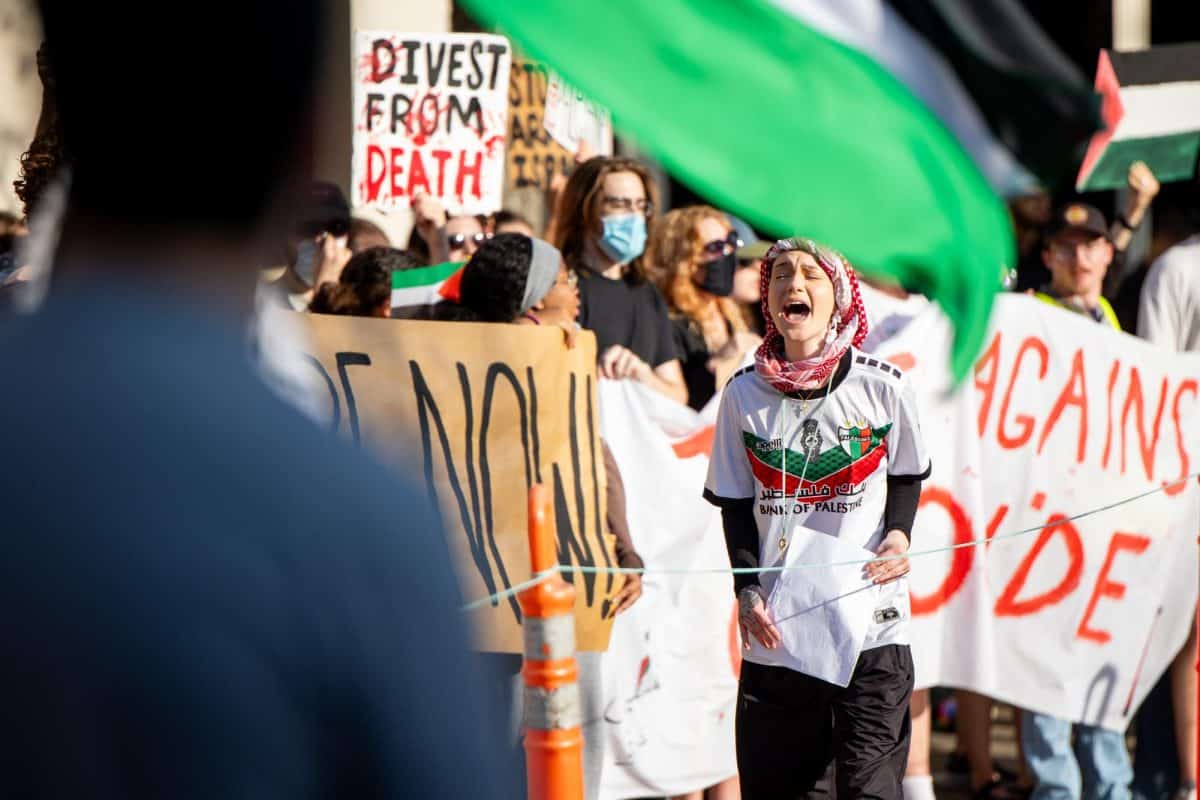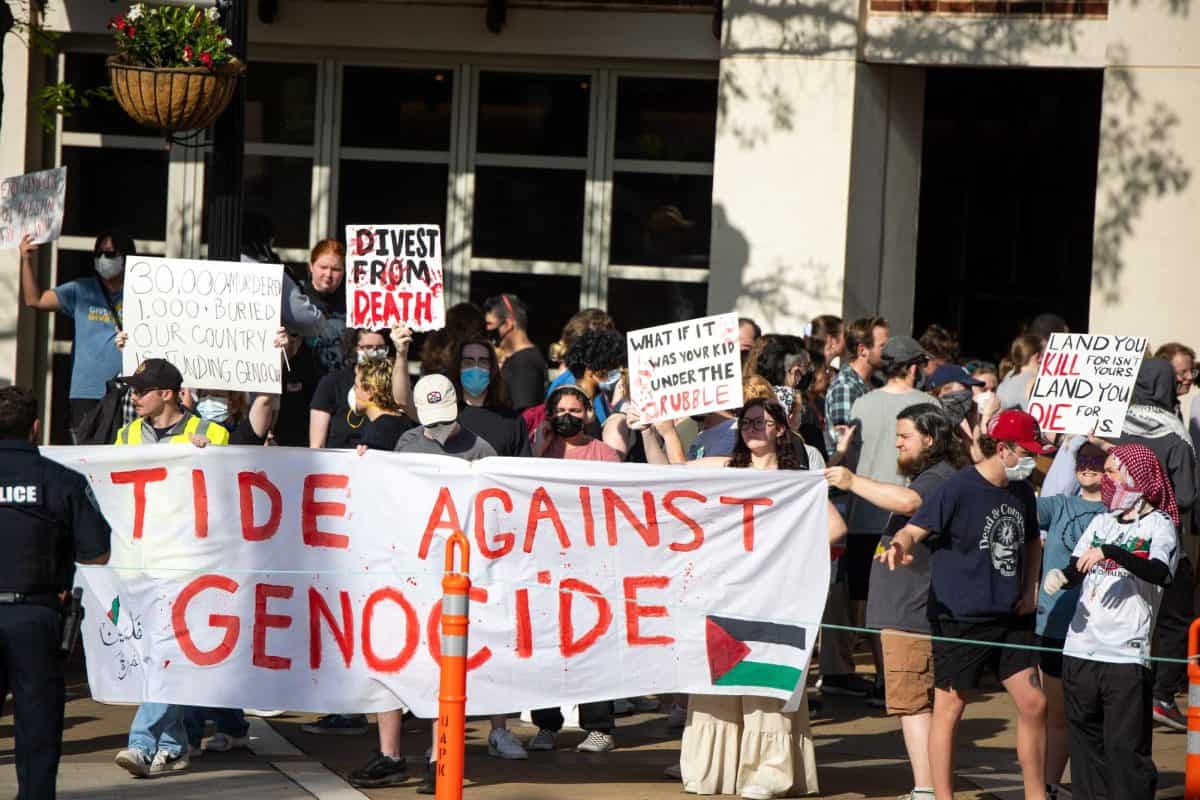The University celebrated the launch of a program for student veterans last week with a visit from author and founder of the National Veterans Foundation, Floyd Meshad. The Veterans Education and Transition Support program was created to help veterans adjust to student life, including offering help with unresolved problems relating to traumatic combat experiences, such as Post Traumatic Stress Disorder.
“Our passion for this program is authentic. This is not just another UA-sponsored program, this is about serving our veterans,” Vice President of Community Affairs Samory Pruitt said at the VETS reception.
Pruitt said Meshad’s visit is the first step, but a big step, in a long journey ahead. Meshad is a veteran of the Vietnam War who, upon returning from combat, founded and directed the Vietnam Veterans Re-Socialization Unit at the VA Hospital in Los Angeles, Calif. Through this initiative he was among the first to study PTSD.
“When I got back home from Vietnam, I spent years trying to figure out what had happened to others and to myself. I felt isolated and alone. I got crushed. I had 16 years of Catholic teaching, and after three weeks in the jungle I lost God. That’s how dark our souls can get,” Meshad said of his own experiences with combat and PTSD.
Over the years, Meshad has worked as a therapist for veterans and as well as an advocate for veterans’ rights. He currently works with veterans returning home from Iraq and Afghanistan by teaching stress reduction and anger management techniques.
“We train young men and women for a year to give them the skills and to make them the best soldiers. We only give them two to three weeks to learn how to transition back. This is a bunch of smoke and mirrors; we need to take care of our veterans,” Meshad said. “They’re paying a high price so we can just simply sit in this room.”
According to Meshad, education is one of the biggest pieces in the puzzle of readjusting.
“When you survive war you come back with a Ph.D. in survival. In the military that’s all you need, but at home you need more. Readjusting is a journey back to your center—education is very important in that,” he said.
“Often when these men and women come home they are simply trying to adjust to sitting in a room next to people who have never served; imagine trying to put them in a classroom. I wish I could just give them a brochure, but it doesn’t work that way. It’s a process,” Meshad said.
During the VETS reception, Meshad said that process is underway at the Capstone and is now growing stronger with the help of the University.
“The student veterans I met with today are outstanding; they’re really looking out for each other and have been. But now, the University can further aid these students with integrating back into society through this VETS initiative. You need to help them to participate and help them to graduate—because that’s the touchdown and this is ‘touchdown-ville.’ Your football team may be the best in the nation, but the guys in uniform are the ones that should be elevated,” Meshad said.
Programs that will be available through the VETS initiative include veterans orientation classes, academic support and personal and family support; veteran to veteran and veteran to faculty or staff mentorships; veteran benefits, financial aid facilitation and referrals; veteran family resources and support; and membership in the UA Veterans Association.
For information about the VETS initiative, visit vets.ua.edu.






